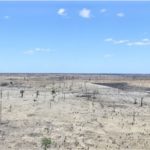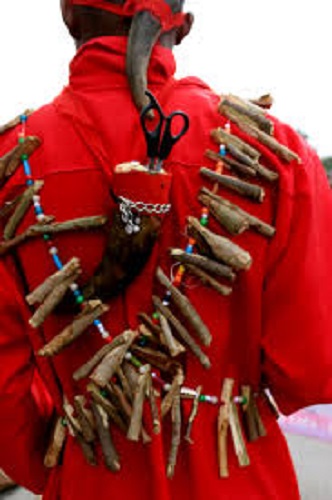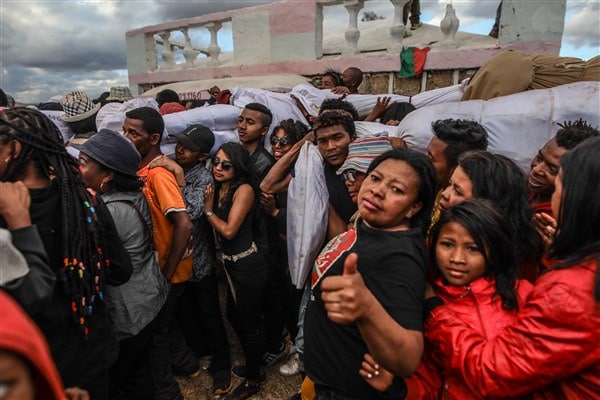Tradition with certain risks
As an agricultural country, the Livestock and also agriculture has always played an important role in Madagascar. Unfortunately, this orientation has already taken a very painful and drastic toll in many areas around nature: Many hectares of Madagascar's original forestation have had to give way to Space for cropland and pasture to create. Slash-and-burn and many other damaging acts are still on the agenda of many villages, families and individual farmers in Madagascar today. According to their experience, this is the only way people can ensure their survival on the island. And this includes the zebus, which for many centuries have been extremely important part of the Malagasy culture are. In the cultural and social life of the population, the zebus occupy an impregnable place and it is impossible to imagine life without them. They are important component of many cultural as well as religious rites and at the same time are considered one of the most important Symbols of wealth and prosperity. According to realistic estimates, there are currently more zebus than people on the island and if you visit one of our Individual travel book and for example to choose a Tour to the Vanilla Coast or an individual trip from Antananarivo to Tulear, you can be sure that sooner or later a few zebus will cross your path.
Zebus as a prestige object
Zebus have a firm place in Malagasy culture: they are needed to gain the favor of the ancestors and it is impossible to imagine many ceremonies without them. However, the zebu are not usually considered to be of any further use. The milk and leather of the humpback cattle are not processed, and people are not interested in the meat of the animals. Also for the work in the agriculture the cattle are used, if at all only very rudimentarily, in order to pull now and then a cart or to trample the earth clods on the rice fields. In fact, the zebus cause most families significantly more costs than benefitsBut changing the entrenched traditions of Madagascar is anything but easy. Nowadays, in addition to the high costs, there is another risk factor for all keepers of zebus: The Cattle thefts in Madagascar have increased almost dramatically in recent years. In fact, among the Bara people in particular, it has always been considered a test of courage to steal a zebu and thereby prove one's manhood. For some years now, however, cattle thefts have taken on ever greater proportions and in many places there is a veritable criminal organizations to speak. Especially for the poorer parts of the population living in the countryside in small villages and communities, this condition poses a high risk. Also in connection with the Death march of the zebus, which plays an important role in Madagascar, the more recent criminal developments surrounding zebu thefts have already had an impact. Every year, zebu raised in the south of the island are taken on an extraordinarily arduous march to the north of the country, a good 1,000 kilometers away, to the appropriate slaughterhouses. On this journey, numerous sparsely populated and arid stretches of land have to be overcome - the enfeebled men cannot withstand an organized raid in this situation.
Traditions are difficult to change
One factor that is particularly important in connection with the keeping of zebus is that the cost-benefit calculation is absolutely unbalanced. The people on the island have apart from the prestige no benefits from keeping the cattle. Since the consumption of meat in Madagascar has dropped dramatically, even well-fed cattle are sold at a low price. On the other hand, there are the enormous costs of keeping the cattle, the great dangers due to cattle theft, and also the high costs of the cattle. The numerous damages to nature and the environment. However, as is also the case with regard to the Rice culture in Madagascar shows that some traditions, even if it is not even exactly clear where they actually come from, cannot be changed or can only be changed minimally from the outside. If you would like to get more information about the relationship between humans and zebu in Madagascar, if you would like to see a real zebu in reality or if you would like to see a whole zebu group in Madagascar, please contact us. Trip to Madagascar want to plan, we will be glad if you consider us as your contact and travel planner. We are waiting for your request.



















